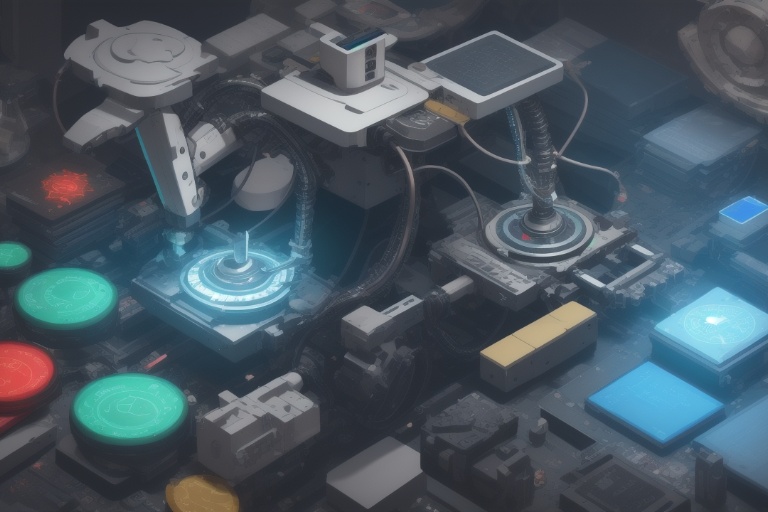Artificial intelligence (AI) stands at the vanguard of business evolution, redefining the very nature of industries as we see them today. This powerful technology simplifies complex job processes and amalgamates vast pools of business data, ushering in a new era of efficiency and innovation. As AI technologies gain a foothold in the corporate world, it’s becoming increasingly important for entrepreneurs and their teams to stay abreast of the trends defining this transformational landscape.
Artificial intelligence (AI) stands at the vanguard of business evolution, redefining the very nature of industries as we see them today. This powerful technology simplifies complex job processes and amalgamates vast pools of business data, ushering in a new era of efficiency and innovation. As AI technologies gain a foothold in the corporate world, it’s becoming increasingly important for entrepreneurs and their teams to stay abreast of the trends defining this transformational landscape.
Every day, most individuals engage with AI-powered applications without even realizing it. Far removed from its former reputation of science fiction dystopias, AI today is a familiar name gracing countless technologies that enrich our daily lives. Its conception dates back to 1956, and since then, AI has charted an impressive course of advancement and integration into various business operations. From the execution of mundane tasks to the implementation of industry-changing breakthroughs, AI is shaking the foundations of traditional business methodologies across sectors.
At the crux of this technological renaissance is the core definition of artificial intelligence: computer software emulating human activities such as learning, decision-making, and problem-solving. This wide-reaching definition, however, only scratches the surface of AI's capabilities. Delving deeper reveals specific applications, with machine learning emerging as one of the integral components of AI within the business sphere.
Machine learning algorithms are particularly adept at processing and extracting insights from large datasets at unprecedented speeds. Their design allows them to "learn" from incoming data, enhancing their performance and accuracy progressively over time. Take, for example, a manufacturing plant equipped with sensor-laden devices monitoring machinery function and output. Machine learning algorithms can dissect this stream of information, pinpoint patterns, and identify deviations from the norm. If a machine's performance declines, these vigilant algorithms can sound the alarm, prompting swift maintenance to preempt costly downtimes.
Nested within the expansive umbrella of AI is the sophisticated domain of deep learning. Deep learning employs artificial neural networks that closely mirror the structure of the human brain, thus enabling intricate, nonlinear reasoning processes. This high-order machine learning approach proves indispensable for executing complex tasks like fraud detection and enabling the operation of autonomous vehicles.
The prowess of deep learning algorithms empowers self-driving cars to process sensor data, such as spatial awareness and movement tracking, in real-time. This data reinterpretation grants self-driving vehicles the acumen to perform sensitive maneuvers, including lane changes and navigation decisions. As we gaze into the future, deep learning signifies an arsenal of untapped possibilities for business applications, poised to scale beyond the limitations of conventional machine learning algorithms.
AI's influence in modern business stretches far and wide, streamlining operations and refining data analytics to secure a competitive upper hand. At the heart of this technological upsurge are the dual forces of machine learning and deep learning, both integral to unleashing the full potential of AI. As organizations increasingly weave AI into the fabric of their operational strategies, the horizons for growth, innovation, and efficiency broaden exponentially.
In subsequent installments of this series, we will delve deeper into the riveting world of AI. We'll uncover its specific applications in programming, explore the intricacies of artificial intelligence, and dissect the transformative impact of machine learning. As we continue, you’ll gain insights into the dynamic ways these technologies are reimagining the future of business and the ripple effects felt across various sectors.
The evolution of artificial intelligence marks an uncharted territory replete with transformative potential for every facet of our daily routines. AI technology enables customization of experiences to a previously unimaginable degree, affecting even the simple act of dining out through personalized recommendations tailored to individual tastes. This technological advancement is supported by rapid improvements in graphics processing units (GPUs) and access to clean, organized data — essential elements fueling the progress of AI applications.
One such groundbreaking shift within AI is the move towards immersive 3D interfaces, which stand to reinvent how we construct connected environments, from the architectural marvels we dwell in to the state-of-the-art boardrooms we convene within. These interfaces promise to bridge the digital and physical realms more seamlessly than ever, unlocking new design possibilities and user experiences.
However, AI's ascendance does not come without its share of challenges, particularly regarding the job market. While there is unease about potential job displacement, it's worth noting that the future workforce will need human-centric skills — creativity, emotional intelligence, and sophisticated problem-solving — that automation and robots cannot easily replicate. It is imperative for society to pivot, adapt, and re-skill in preparation for the evolving job landscape shaped by AI.
The journey of adapting to and integrating AI into the corporate fabric is not without its hurdles, but it’s one that businesses must undertake to secure their relevance in the future. There exists an ocean of opportunity for those ready to embrace AI, master its capabilities, and utilize its power to drive enterprise-wide innovation and operational efficiency.
As we stand on the cusp of this AI-led transformation, the business world awaits a future brimming with opportunity. The progression of AI continues to unfold before our eyes, constantly redefining the corporate sector and opening new doors. How industries and businesses navigate this journey will determine their place in the future AI has begun to map out.
Information for this article was gathered from the following source.




